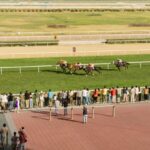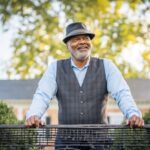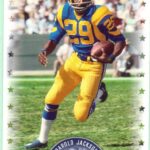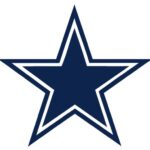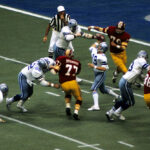Arnold Palmer Led the American Invasion of the British Open
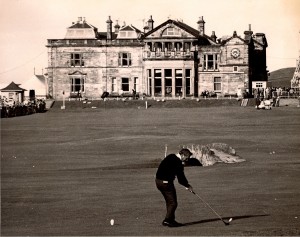
Arnold Palmer was the first American in the modern era to regularly play in the British Open.
The absence from The Open Championship (often referred outside of England as The British Open) of Tiger Woods last year and the decision by Phil Mickelson not to make the trek across the pond this year harkens back to a time when it was common practice for the top Americans to skip golf’s oldest championship.
Of course, both Woods (knee surgery) and Mickelson (family illness) have legitimate reasons for not competing in the only major tournament not played in the United States. However, had it not been for a decision nearly 50 years ago by popular American golfer Arnold Palmer to compete in The Open, it is possible that the list of great Americans not playing in the tournament would be significantly longer.
Though The Open, which was first played in 1860, was the oldest of the four major championships, in the 1940s and 1950s it was not a popular tournament among the top American players. The hassles associated with traveling overseas, the relatively small prize money and the stark contrast of playing on the links golf courses made it unattractive for most American players.
It had not always been that way.
Between World War I and World War II the top American golfers of the era regularly withstood the difficulties to participate in The Open.
Starting in 1921 when Jock Hutchison, who was born in Scotland but became an American citizen in 1917, prevailed in a playoff over England’s Roger Wethered, the Americans enjoyed a decade of dominance.
In 1922, Walter Hagen became the first American born champion of The Open and he went on to claim the championship four times in the decade.
Amateur Bobby Jones claimed the championship three times and in 1930 won his own unique “Grand Slam” as he claimed both the U.S. and British Open and U.S. and British Amateur Championships in the same calendar year.
Victories by Gene Sarazen in 1932 and Denny Shute in 1933 completed a stretch when seven Americans (including four born in the U.S. and three naturalized citizens) claimed 12 of 13 Open Championships.
The Great Depression and increasing instability in Europe limited the number of top Americans participating in the tournament over the remainder of the 1930s and an English player won the title each year for the rest of the decade.
After not being played from 1940-45, American Sam Snead hoisted the traditional champion’s prize, The Claret Jug, in 1946. Snead would not compete in the tournament again until 1962.
Similarly, the other great American golfer of the era, Ben Hogan, competed in The Open only once in his career, winning the tournament in 1953. During that amazing season, Hogan became the first player to win the Masters, U.S. Open and British Open in the same year. He did not compete in the fourth major, the PGA Championships, that year.
In 1960, Palmer had a chance to match Hogan’s feat having won the Masters and U.S. Open titles.
Having never previously made the trek to play in The Open, it took persuading by Palmer’s business partner Mark McCormack before Palmer agreed to participate.
While most were focused solely on the golf tournament, McCormack saw the bigger picture and recognized the enormous potential for the charismatic Palmer to become a global giant.
Palmer just missed the title in 1960, falling by a single stroke to Australian Kal Nagle. However, subsequent victories by the American in 1961 and 1962 convinced other Americans that they could win across the pond and forever sealed Palmer’s legacy as an international golf superstar.
Once Palmer opened the door, the Americans quickly walked right in and made themselves at home.
Tony Lema claimed the 1964 title in his first appearance in the tournament. Jack Nicklaus won his first of three championships in 1966.
Beginning with a victory by Nicklaus at St. Andrews in 1970, Americans claimed 12 of the next 14 Open Championships.
Leading the way was Tom Watson, who claimed the championship five times–each on a different course–between 1975 and 1983.
Between 1984 and 1994 the Americans hit a surprising drought as the only title brought back to America was by Mark Calcavecchia in 1989.
The Americans returned to prominence beginning in 1995 when John Daly claimed the title in a four-hole playoff.
He started a string of 10 victories by Americans over the next 12 years. Leading the charge was Tiger Woods with three victories, including consecutive titles in 2005 and 2006.
Ireland’s Pádraig Harrington ended the Americans’ run in 2007 and repeated as champion a year ago.
In all, since Palmer made his fateful trip to St. Andrews in 1960, Americans have claimed 27 of the 49 Open Championships.
With Woods back in the field this year and a number of young Americans, including U.S. Open Champion Lucas Glover, on the prowl, there is certainly a good chance that the 50th tournament in the American Invasion could result in another American hoisting the Claret Jug come Sunday.
